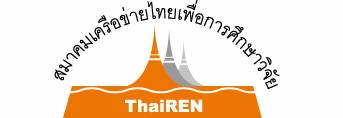
Digital classes help Thailand cope with COVID
Efforts to advance distance learning in Thailand got off to a jump start, as the COVID-19 pandemic hit by spring 2020.
“We are fortunate to have good network connections to the various institutions in Thailand, but we were not prepared for the sharp rise in demand following the general lockdown. Therefore, being able to provide Zoom accounts for the research and education community was very helpful, especially by the beginning of the lockdown,” says Dr. Chalermpol Charnsripinyo of ThaiREN, the national research and education network (NREN) of Thailand.
ThaiREN is part of a group of young NREN’s which in 2018 chose to join an international project “Facilitating Distance Learning using Digital Conferencing Facility”. The initiative came from the regional research and education network of the European Nordics, NORDUnet.
Solutions had to be found urgently
As part of the project, NORDUnet provided ThaiREN with Zoom licenses.
“At the outset, interest in the research and education community was not that high. A few months later, as COVID lockdowns were introduced, the situation changed completely. We didn’t have enough accounts,” says Chalermpol Charnsripinyo.
It wasn’t as if the project suddenly opened the eyes of the Thai research and education community to distance learning, Chalermpol Charnsripinyo underlines:
“Most of our member institutions already had various accounts, some with Zoom others with other providers. However, nobody was prepared for the steep rise in demand triggered by the lockdown. And to make matters worse, the lockdown occurred in the middle of the semester, so solutions needed to be found urgently. Here, being able to provide Zoom accounts came in very helpful.”
Enormous demand for remote education
Seeing the sharp rise in demand, NORDUnet decided to raise the number of Zoom licenses for ThaiREN.
“We were happy to help during the COVID situation, but I would like to say that the vision behind the project actually goes a lot further,” says NORDUnet CEO René Buch, continuing:
“While the current focus is online solutions for the research and education community, we imagine remote learning coming in place for primary and secondary schools. If you look at a country like Thailand with a large proportion of the population being children and young people, it is evident that the demand for education is enormous.”
Even though Thai research and education institutions already have mutual connections of very high standards some challenges do exist, René Buch points out:
“While the national connectivity is at a high level, the same is currently not true for the international connectivity. Therefore, it is not feasible to establish cloud-based solutions for something like remote education. The entire technical setup needs to be different from what we would do in, say, Northern Europe. However, the rewards are huge, once you manage to overcome these challenges. For many young people especially in remote parts of Thailand, having access to online education could be life-altering.”
Online meetings have come to stay
Since the onset of COVID-19 lockdowns, several Thai institutions bought their own accounts – either from Zoom Inc. or other providers. Accordingly, things have calmed down somewhat, notes Dr. Charnsripinyo:
“Most of our member institutions will surely want to continue having online classes, regardless of the status of COVID. Also, the trend of having online meetings instead of physical ones has come to stay. We will surely not travel as much as we did before the pandemic. Less time on the road means more time for research and education. However, the future requirements will probably change. We will not need to support as large peak loads as we do now.”
This will also depend on financial considerations:
“For the longer haul, a sustainable business model has to be found. We will engage in negotiations to find a solution for our members,” Chalermpol Charnsripinyo states.
The international distance learning project was formally terminated by late summer 2021. However, the collaboration between the partners continues, and NORDUnet has prolonged the licenses and continues its assistance to the emerging NRENs.
For more information please contact our contributor(s):


